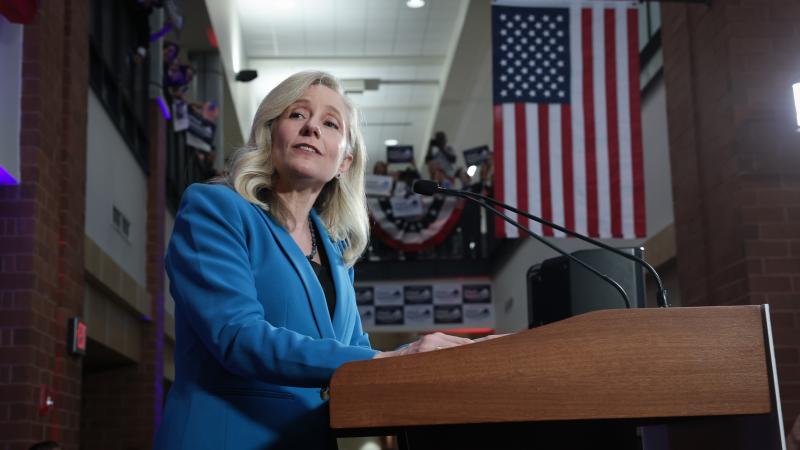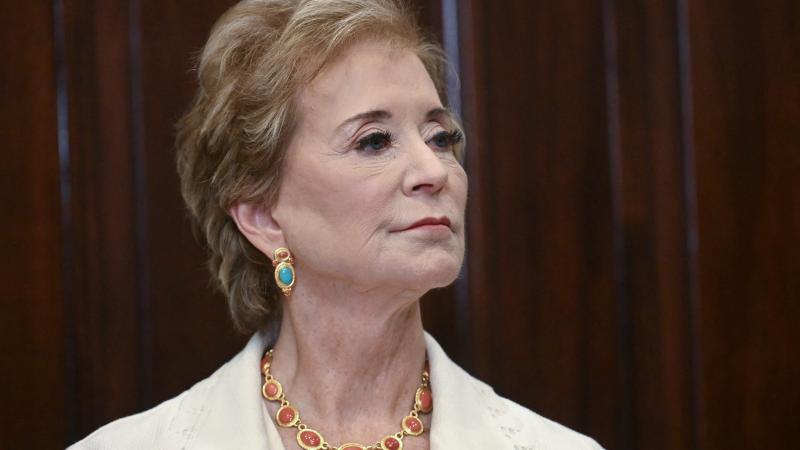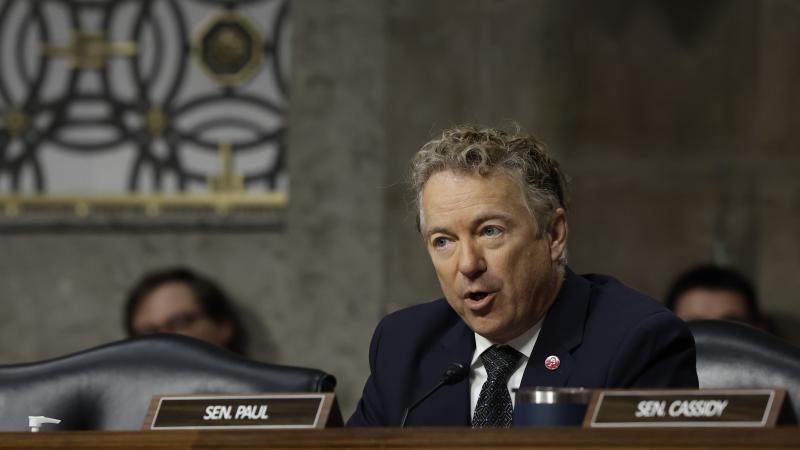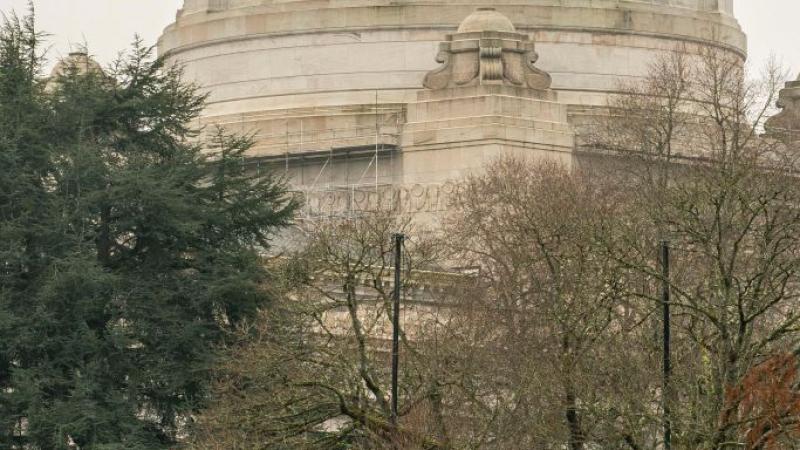Education groups warn feds not to reinstate race-based school discipline guidance
Obama administration policy was based on "statistically illiterate" report and selectively highlighted disparities, they say.
As it considers turning back the clock on Title IX rules for sexual misconduct investigations, the Biden administration is also eyeing a return to the "disparate impact" school discipline policies the Trump administration rescinded in 2018.
In its request for information on "nondiscriminatory administration of school discipline" last month, the Department of Education's Office for Civil Rights (OCR) claimed nonwhite students in general, and in "individual racial groups," don't commit more disciplinary offenses than their white peers.
Yet black, Latino and Native American students receive "substantially more school discipline" and "harsher and longer punishments" compared to whites, suggesting racial discrimination was the culprit.
The proceeding drew nearly 2,700 public comments by its Friday deadline. Many warned against reimposing an alleged quota-based system under which school districts could be investigated by the feds for disparate disciplinary rates, especially by race or disability status.
The U.S. Commission on Civil Rights (USCCR) report cited by the feds is "statistically illiterate," Parents Defending Education wrote in its comment urging the department to not reinstate the Obama administration's 2014 disparate-impact guidance.
That 2019 report relied on "self-reported incidents" by male 10th graders and used different scales for misconduct rates and disciplinary outcomes, which "creates an artificial perception" that the two are "mismatched," the group said. The commission limited misconduct to alcohol, drugs and guns at school, but included discipline for all misbehavior that resulted in at least a trip to the principal's office.
OCR is also highly selective in the disparities it highlights, focusing on black versus white, the comment said.
Asian-American students typically have lower disciplinary rates than whites, yet Pacific Islanders have higher rates than black students, which by OCR's logic would mean the U.S. is "arbitrarily racist." The agency also does not argue that male students suffer systemic discrimination even though they make up nearly three-quarters of expulsions, the comment said.
Parents Defending Education frequently cites from a 119-page comment by longtime USCCR member Gail Heriot, who dissented from the "Beyond Suspensions" report when it was released and wrote a law review article challenging the 2014 guidance.
"While both misbehaving and model students come from every walk of life, no one should be surprised to learn that students from households below the poverty line" and those born out of wedlock "tend to present more discipline challenges than others," she wrote. Blacks and Hispanics have much higher rates for both than do whites and Asian Americans. "One cannot infer race discrimination from the differing discipline rates," she reasoned.
Heriot, a University of San Diego law professor who was considered a contender for OCR chief in the Trump administration, argued that "plenty of evidence shows that the threat of discipline is a prominent deterrent for student misbehavior, and that the resultant environment is one that promotes learning."
The Pacific Legal Foundation, whose lawyer Alison Somin cowrote the law review article with Heriot, told OCR that the 2014 guidance was both out of step with Title VI and "bad policy that led to increased disorder in classrooms across the nation."
Teachers in Oklahoma City and Indianapolis revolted against disparate-impact reforms in 2015 that sharply reduced suspensions and increased misbehavior, from screaming at teachers to physically assaulting them, the comment said.
OCR will harm children with "the fewest resources at home, some of whom are themselves racial and ethnic minorities," if it issues guidance that ends up depriving them of "some basic level of order in the classroom," the legal group said.
The black leadership network Project 21 warned that reinstating the 2014 guidance "puts teachers in a tenuous position," rendering them "vicious racists" based on the statistics of their disciplinary referrals.
Imposing racial quotas for discipline "creates a death spiral for quality-of-life in schools with large minority student bodies," the group said. Misbehaving students become more "unruly" when they aren't disciplined, harming those students who are trying to learn.
The Texas Classroom Teachers Association told OCR that the 2014 guidance had a "chilling effect" on its 50,000 members' ability to maintain classroom order "without providing useful alternatives." Districts were more focused on "avoiding federal investigations" than helping students.
It said the department's National Center for Education Statistics showed an all-time high for teachers "threatened with injury or physically attacked by students" in the 2015-2016 school year, with the exception of 2011-2012, which had similar figures.
The Texas group supports a pilot program in the Dallas Independent School District that sends disruptive students to "reset" classrooms to address behavioral issues and has them complete classwork remotely, rather than suspending them.
The School Superintendents Association said new federal guidance would not be "particularly impactful or useful" as districts address disparate discipline rates. Both the 2014 guidance and 2018 rescission had limited effect on changes to districts' policies and practices, in contrast to state-level policy changes.
First Liberty Institute, a public interest law firm focused on religious freedom, asked OCR to explicitly mention religious discrimination in school discipline in future guidance or rulemakings. It's not mentioned in the request for information.
The agency worsened the problem in its recent LGBTQ fact sheet by characterizing the statement "there are only boys and girls" as harassment, encouraging schools to "misunderstand numerous religions' teachings about gender" and discipline students for their views on gender and sexuality.
In some of First Liberty's cases, school officials punished its clients "ironically out of a desire to forcibly foster a positive and inclusive learning environment" that stigmatizes unpopular "cultural beliefs" in the community, it said.
The Alliance Against Seclusion and Restraint asked OCR to expand the definition of "seclusion" to "recognize the power differential" between adults and children and include environments where children "may perceive that they are not free to leave."
It wants the feds to withhold funding from school districts and even private schools that practice seclusion or "prone and supine restraint," the latter of which is already strongly discouraged in federal guidance. The group said seclusion is neither "therapeutic" nor often used in situations that involve "imminent serious physical harm," and it can increase aggression and even lead to post-traumatic stress disorder.















